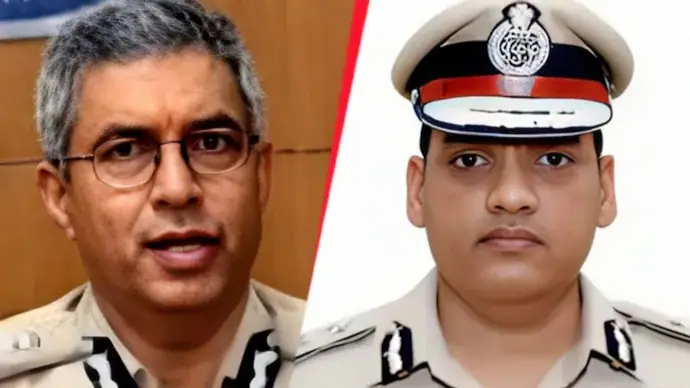Chandigarh (Balwinder Singh): A senior Indian Police Service (IPS) officer’s suicide has ignited a storm in Haryana, with explosive allegations pointing to caste-based discrimination and institutional harassment within the ranks of the state’s police and administrative machinery.
The officer, Y Puran Kumar, a 2001-batch IPS officer posted in Haryana, died by suicide earlier this week at his official residence in Sector 11, Chandigarh. According to initial police reports, he used his service revolver. His body was discovered by his daughter in the basement, leaving the family and the civil services community in deep shock.
Now, a formal police complaint filed by Kumar’s wife, senior IAS officer Amneet P Kumar, has triggered legal action. An FIR has been registered naming Haryana Director General of Police (DGP) Shatrujeet Singh Kapur and Rohtak Superintendent of Police Narendra Bijarnia, among others. They are accused of abetment to suicide and charged under the Scheduled Castes and Scheduled Tribes (Prevention of Atrocities) Act.
In her complaint, Amneet alleged that her husband had endured prolonged mental harassment, largely motivated by caste-based prejudice. She claims that the harassment wasn’t a recent development but a pattern that had intensified over the years.
“This isn’t just about personal grief. This is about justice for an honest officer who was relentlessly targeted because of his identity,” Amneet stated. “His death was not a random act of despair but the result of systematic mental torture.”
The late officer left behind an eight-page note that is now central to the investigation. In it, Kumar outlined multiple instances of public humiliation and mental distress, linking them to specific officials. He referred to being denied earned leave during his father’s final days, calling it a moment that caused him immense emotional damage. The note further reveals that his ordeal began after a temple visit in Ambala in 2020, following which he faced continuous backlash from senior colleagues.
The note accuses several high-ranking figures of deliberately sidelining him, humiliating him over his caste background, and ignoring written complaints he submitted over the years.
The incident has shaken both the police and administrative services, with growing calls for transparency and accountability. Political voices, too, have weighed in. Congress leader Rahul Gandhi, in a social media post, termed Kumar’s death as a “tragic reflection of the entrenched caste-based discrimination in our institutions.”
“When those meant to uphold the law fall prey to such toxic biases, one can only imagine what the common man faces,” Gandhi said.
Amneet, who was in Japan on official duty at the time of the tragedy, has written to Haryana Chief Minister Nayab Saini demanding an impartial investigation and justice for her husband. She described the suicide note as a “testament of a life systematically broken,” adding that her husband’s legacy should not be buried under silence.
Civil society groups and rights organizations have now joined in, urging the state to set up an independent inquiry. Meanwhile, opposition parties are accusing the ruling government of failing to address systemic caste-based prejudice within its institutions.
As the investigation unfolds, attention has turned to whether the administration will acknowledge and act upon the deep-rooted issues exposed by this tragedy — or whether yet another voice lost to systemic abuse will go unheard.

